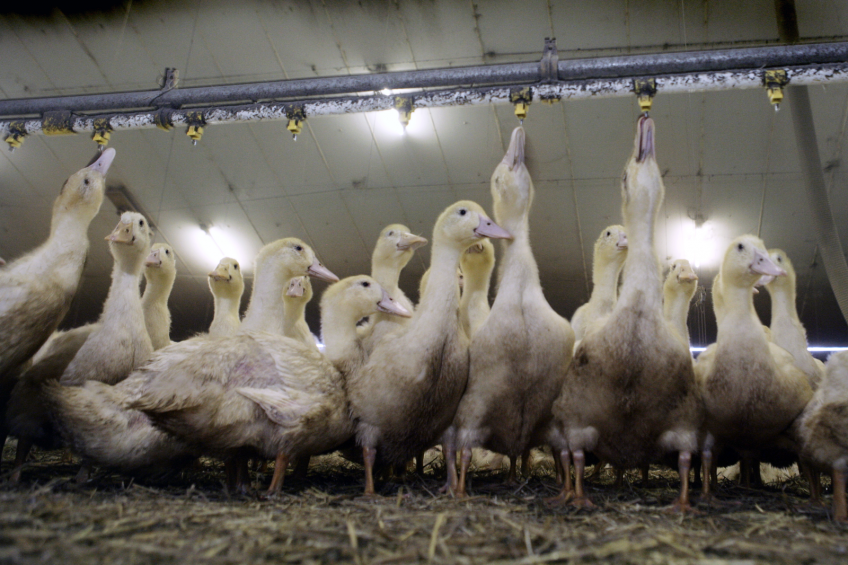RSPCA under fire for attacking duck-rearing standards

The RSPCA has recommended consumers cease buying British duck because it feels the standard of production in the UK is not up to scratch.
In a move that has come under heavy criticism from the poultry industry, the RSPCA is revisiting its “like a duck to water” campaign, first launched in 2012, which calls for farmed duck to have access to open water.
Reared to Red Tractor standards
Much of the duck in the UK is reared to Red Tractor standards, adopted from the British Poultry Council (BPC) Duck Assurance Scheme, which specifies that ducks are able to submerge their heads fully underwater. The BPC said open water in indoor duck farming systems is defecated in and splashed over litter, creating a heightened disease risk. It added that its standards had been developed in association with researchers, industry, Defra and the RSPCA itself, and that the charity’s standards were drawn up “by a working group lacking any practical experience”. But the RSPCA says the extra risk can be managed, and allows ducks to exhibit natural behaviours and preen more effectively. It argues this can boost production and prevent disease.
Freedom Food scheme lost a dramatic amount of market share
Red Tractor first assured duck in 2012 and the RSPCA’s Freedom Food scheme lost a dramatic amount of market share.
It has released a 48-page report comparing three welfare assurance schemes – its own Freedom Food, Soil Association’s organic standards and Red Tractor – which is heavily referenced to studies that support affording access to open water for farmed ducks.
Industry bodies say there is an equal amount of research suggesting that restricting full access to water is better for health.
‘RSPCA does not want to work with the industry’
David Clarke, chief executive of Red Tractor, said the disagreement would do nothing for consumer confidence, and the RSPCA waging a high-profile campaign against other assurance schemes was unhelpful. “The basic fact is, as an industry, we have tried to work with the RSPCA, but they don’t want to. We’re both working to the same objective – higher welfare – but are coming at it from a different point of view,” he said.
Source: Farmers Weekly












